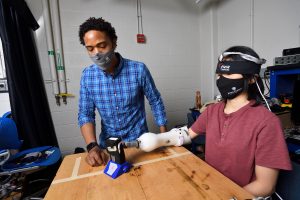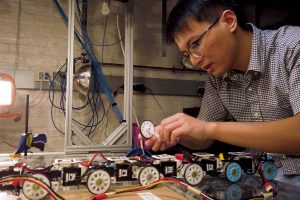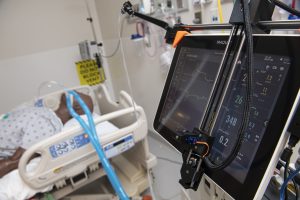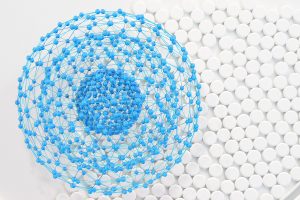Recent News
-

Led by Johns Hopkins University, a team of 10 researchers from three institutions is using a new $4 million, five-year grant from the National Science Foundation to create a next-generation turbulence database that will enable groundbreaking research in engineering and the atmospheric and ocean sciences.
-

Through neuroimaging, engineers discover that prosthetics that provide haptic sensory feedback lessen the mental energy users expend when using the device.
-

Simulations offer new approach for designing high strength metals under high rate loading
CategoriesJaafar El-Awady, associate professor of mechanical engineering, has co-authored research that reveals more clues about the microscopic mechanisms that govern the strength of metals. The findings were recently published in Nature Communications.
-
Kang has written a focus article about the fabrication of and potential applications for an electrically-controlled shape-memory microactuator that operates in a solution matching the ion concentration of the human body.
-

Robots helped hospitals confront the coronavirus pandemic. What lessons are engineers taking with them as they think about the next generation of health care robots?
-
Sung Hoon Kang, assistant professor in the Department of Mechanical Engineering and a fellow in the Hopkins Extreme Materials Institute, has received a grant through the Bisciotti Foundation Translational Fund.…
-

“Telerobotics for Remote Control of Medical Equipment in Contagious Environments” won the Best Innovation Award at the inaugural Medical Robotics for Contagious Diseases Challenge 2020.
-

Awarded every three years by the European Association for the Promotion of Research into the Dynamic Behavior of Materials and Its Applications (DYMAT), this award recognizes outstanding effort and creative work in the science and technology of dynamic processes in materials and related applications.
-

Using DNA as a scaffold, engineers create synthetic nanomaterial that could pave the way for rapid and more accurate diagnostic testing from a single molecule.









